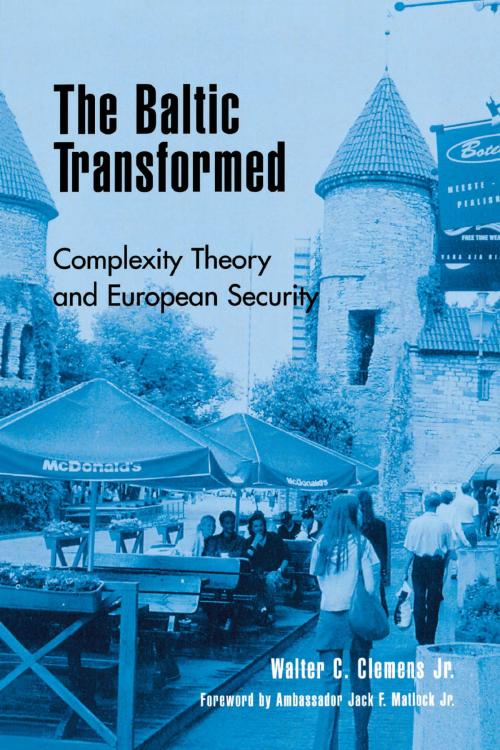The Baltic Transformed
Complexity Theory and European Security
Nonfiction, Social & Cultural Studies, Political Science| Author: | Walter C. Clemens Jr. | ISBN: | 9780742571143 |
| Publisher: | Rowman & Littlefield Publishers | Publication: | June 6, 2001 |
| Imprint: | Rowman & Littlefield Publishers | Language: | English |
| Author: | Walter C. Clemens Jr. |
| ISBN: | 9780742571143 |
| Publisher: | Rowman & Littlefield Publishers |
| Publication: | June 6, 2001 |
| Imprint: | Rowman & Littlefield Publishers |
| Language: | English |
Why isn't the Baltic region like the Balkans? Why have the Baltic republics not experienced ethnic cleansing, border wars, authoritarian rule, and social chaos? Instead, peace, democracy, and market economies have taken root since the fall of communism. Walter C. Clemens, Jr. here uses complexity theory, which analyzes the role of self-organization in complex adaptive systems, to explain the 'Baltic miracle.' He argues that the theory is a vital tool for understanding the remarkable strides made by Estonia, Latvia, and Lithuania since 1991 in coping with the transition to partnership with the new Europe. The Baltic peoples have adapted well to the demands of democracy, a market economy, and a constructive role in world affairs. The achievements of Estonia, Latvia, and Lithuania in the past decade are the more amazing when considered against the hundreds of years they were dominated by Teutonic knights, Hanseatic merchants, Sweden, Russia, and the USSR. Clemens uses this history as a springboard to analyze how Balts self-organize today to meet the challenges of transition. One of the first books to apply complexity theory to a major sphere of world politics, The Baltic Transformed will provoke constructive debate with its ambitious and well-grounded analysis of not only Baltic developments but European security more generally. Despite its theoretical foundation, the book is written in a clear and accessible style that will make it invaluable for courses on comparative politics, political development, international relations, security, or transition studies.
Why isn't the Baltic region like the Balkans? Why have the Baltic republics not experienced ethnic cleansing, border wars, authoritarian rule, and social chaos? Instead, peace, democracy, and market economies have taken root since the fall of communism. Walter C. Clemens, Jr. here uses complexity theory, which analyzes the role of self-organization in complex adaptive systems, to explain the 'Baltic miracle.' He argues that the theory is a vital tool for understanding the remarkable strides made by Estonia, Latvia, and Lithuania since 1991 in coping with the transition to partnership with the new Europe. The Baltic peoples have adapted well to the demands of democracy, a market economy, and a constructive role in world affairs. The achievements of Estonia, Latvia, and Lithuania in the past decade are the more amazing when considered against the hundreds of years they were dominated by Teutonic knights, Hanseatic merchants, Sweden, Russia, and the USSR. Clemens uses this history as a springboard to analyze how Balts self-organize today to meet the challenges of transition. One of the first books to apply complexity theory to a major sphere of world politics, The Baltic Transformed will provoke constructive debate with its ambitious and well-grounded analysis of not only Baltic developments but European security more generally. Despite its theoretical foundation, the book is written in a clear and accessible style that will make it invaluable for courses on comparative politics, political development, international relations, security, or transition studies.















